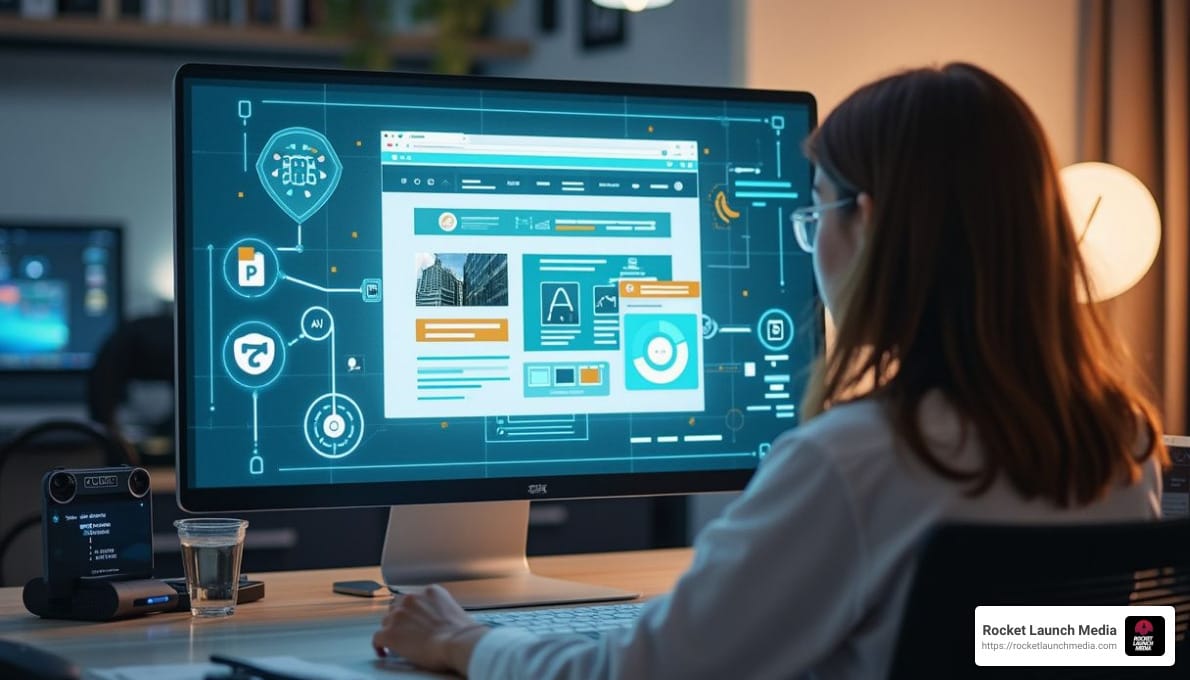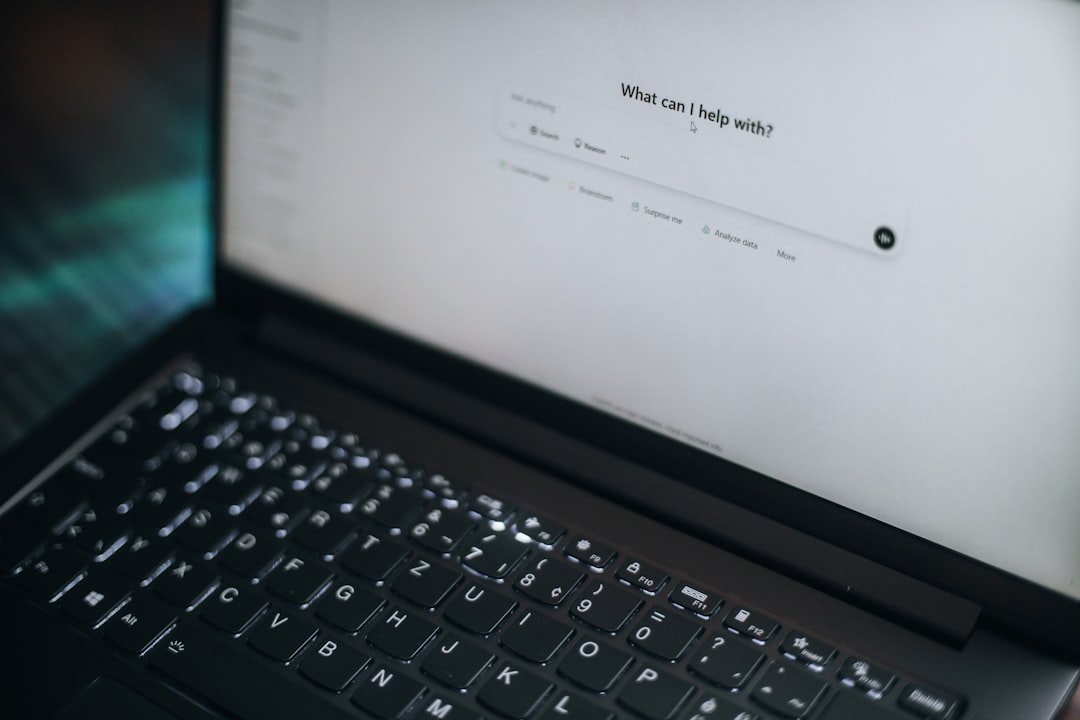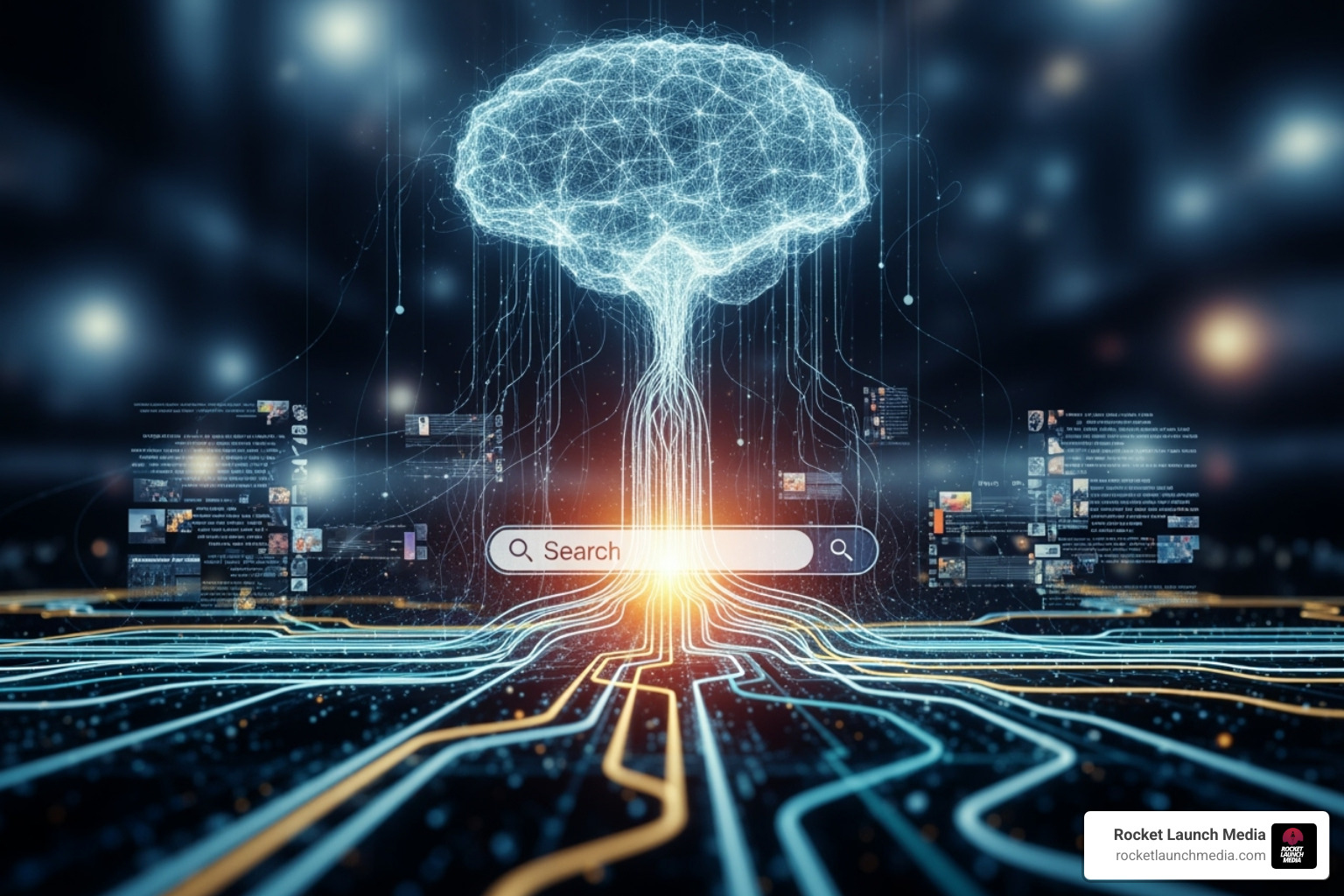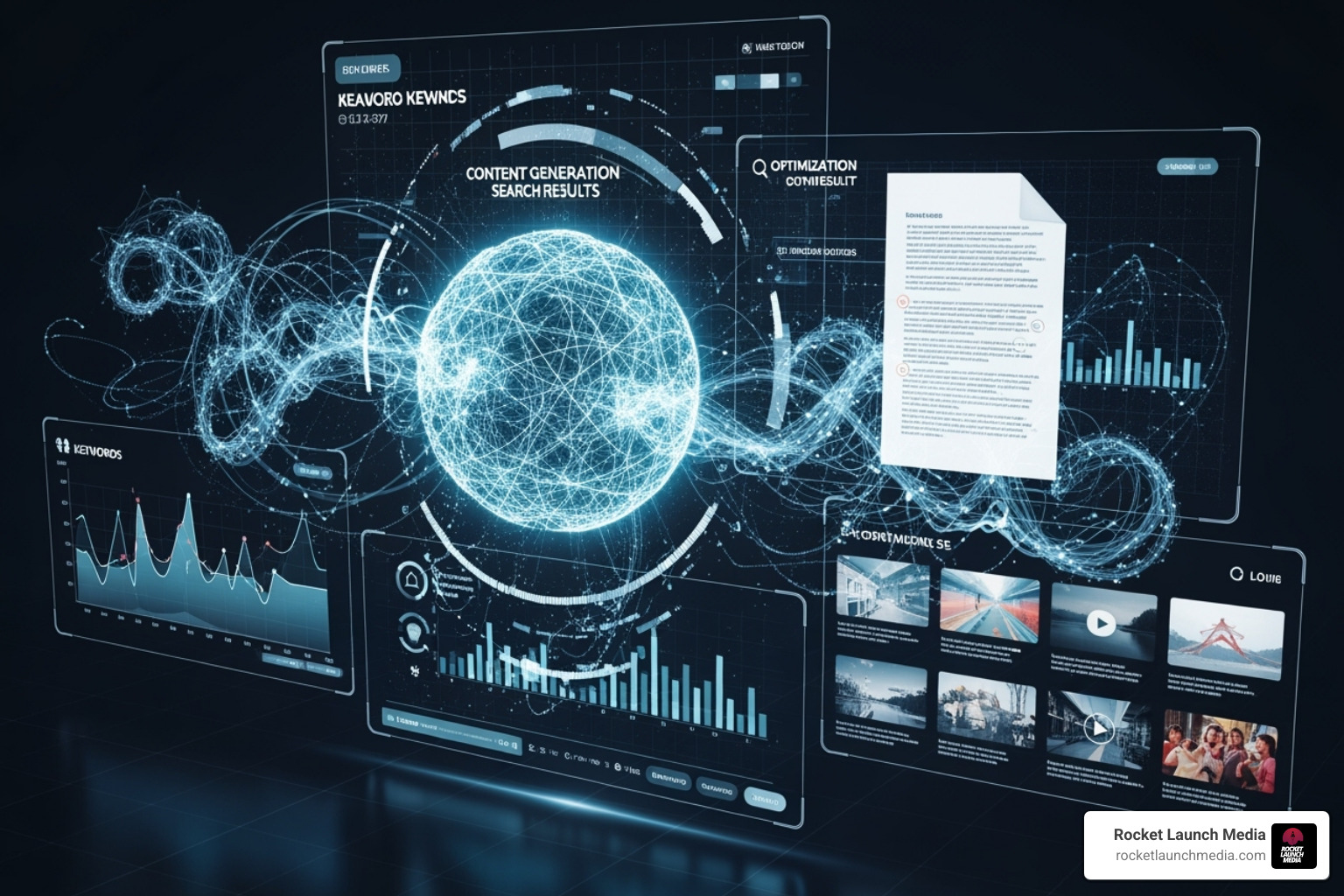If you’re looking for best ai for web design, you’re in the right place. Here’s a quick list to get you started immediately:
- Wix: Best for ease of use.
- Jimdo: Great for quick setups.
- Framer: Impressive design capabilities.
- Hostinger: Unique features like a logo builder.
- Squarespace: Excellent for creatives and designers.
Finding the best ai for web design can be a game-changer for your business. Using AI-powered tools can streamline the process, making it easier and more efficient to create aesthetically pleasing websites without heavy coding.
I’m Ahmed Elmahdy, founder of Rocket Launch Media. With over a decade of experience in digital marketing, I’ve seen how AI tools can transform web design. My team and I have helped numerous clients achieve higher online visibility and better user engagement through innovative web solutions.
Understanding AI in Web Design
AI is revolutionizing web design by streamlining processes and making it easier for anyone to create stunning websites. But can AI actually design a website? Let’s dive in.
Can AI Design a Website?
Yes, AI can design a website. AI website builders use natural language processing (NLP) and machine learning to understand user preferences and generate custom website designs. These tools analyze vast amounts of data to understand design principles, user experience best practices, and coding patterns.
For instance, Wix’s AI website generator can create a fully-fledged website with minimal input from you. You simply provide some prompts about your business, and the AI takes care of the rest. According to Tech.co, Wix’s AI-generated sites are aesthetically pleasing and professional-looking.
However, it’s important to note that using AI tools isn’t a “set it and forget it” situation. You still need to monitor the results and make adjustments to ensure the site meets your specific needs.
Best AI for HTML and CSS Design
If you’re focused on HTML and CSS, there are specialized AI tools that can help. ClickUp Brain is a standout in this area. It uses AI to generate CSS code and streamline web development processes. This can save you a lot of time, especially if you’re not a coding expert.
Another excellent tool is the CSS code generator. This AI-driven tool can automatically generate CSS code based on your design inputs. It’s perfect for developers who want to speed up their workflow without compromising on quality.
AI tools like these are particularly useful for:
- Automating repetitive tasks: No more manually writing endless lines of code.
- Optimizing code for performance: Ensure fast load times and smooth user experiences.
- Providing intelligent design suggestions: Get recommendations based on best practices.
By leveraging AI, you can focus on higher-level strategy and custom coding, making the entire web development process more efficient.

In the next section, we’ll explore the best AI tools for web design, including top AI website builders and AI design generators.
Best AI Tools for Web Design
Top AI Website Builders
AI website builders have transformed the web design landscape, making it easier for anyone to create a professional-looking site. Here are some of the best options:
Wix
- Pros: Offers a full suite of AI tools including a text-prompted website builder, AI coding tools, and an AI text generator. It’s perfect for beginners and provides built-in SEO features.
- Cons: Paid plans start at $17/month, which can be pricey compared to other options.
- Key Feature: Built-in ChatGPT capabilities for improved user interaction.
Hostinger
- Pros: Known for its affordability with plans starting at just $2.99/month. It can design entire pages, generate copy, and suggest free images.
- Cons: Limited customization options compared to more expensive builders.
- Key Feature: AI logo generator and copy assistance.
Jimdo
- Pros: Offers a highly customizable setup and is great for detailed web design.
- Cons: Limited to simpler websites; may not be ideal for complex projects.
- Key Feature: AI-driven customizable setup.
Framer
- Pros: Excellent for those who want to build a website quickly. It can take a prompt and create a site structure.
- Cons: More technical than Wix or Jimdo, requiring some manual tweaks.
- Key Feature: AI site builder that can generate a website from a simple prompt.
GoDaddy
- Pros: Fast setup time and offers a complete AI solution for small businesses.
- Cons: Limited customization compared to other platforms.
- Key Feature: AI-generated small business marketing materials.
Best AI Design Generators
AI design generators help create stunning visuals, from images to complete layouts. Here are some top choices:
Dall-E 3
- Pros: Generates high-quality images from text descriptions.
- Cons: May require some tweaking to get the desired result.
- Key Feature: Text-to-image generation.
Leonardo AI
- Pros: Excellent for creating detailed and realistic images.
- Cons: Can be resource-intensive.
- Key Feature: Realistic image generation.
Adobe Firefly
- Pros: Integrated with Adobe’s suite of tools, making it easy to use for existing Adobe users.
- Cons: Requires an Adobe subscription.
- Key Feature: AI-powered design tools for creating images and graphics.
Canva
- Pros: User-friendly and offers a wide range of templates and design elements.
- Cons: Limited to simpler designs.
- Key Feature: AI design suggestions and template customization.
AI Tools for Specific Needs
Different AI tools cater to specific aspects of web design, from color palettes to content creation:
Khroma
- Purpose: AI-powered color palette generation.
- Key Feature: Generates harmonious color schemes based on user preferences.
Uizard
- Purpose: Converts hand-drawn sketches into digital UI mockups.
- Key Feature: Transforms rough wireframes into high-fidelity screens.
Copy.ai
- Purpose: AI-powered copywriting tool.
- Key Feature: Generates engaging content for blogs, social media, and emails.
Uibot
- Purpose: Automates UI/UX tasks.
- Key Feature: Provides intelligent design suggestions and optimizations.
Fronty
- Purpose: AI-driven code generation.
- Key Feature: Converts design mockups into HTML, CSS, and JavaScript.
Using these tools, you can streamline your web design process, improve efficiency, and create stunning websites with minimal effort.
In the next section, we’ll explore how AI is changing web design, including improvements in user experience and the competitive landscape.
How AI is Changing Web Design
AI Improvements in Web Design
AI is revolutionizing web design by making the process faster, smarter, and more efficient. Major tech companies like IBM, Google, and OpenAI are leading the charge with cutting-edge AI technologies.
IBM Watson is a prime example. It uses AI to provide ultra-personalized recommendations, which Netflix leverages to boost viewer retention by 75%. This level of personalization is now trickling down to web design, allowing designers to create websites that are highly custom to user preferences.
Google’s AlphaFold is another game-changer, although primarily used in scientific research. Its advanced machine learning capabilities could soon influence web design by enabling more accurate and efficient data analysis, leading to improved user experiences.
OpenAI’s DALL-E is already making waves by generating high-quality images from text descriptions. This can be a huge time-saver for designers, allowing them to quickly create visuals that match their vision without the need for extensive manual effort.

AI vs Human Web Designers
The rise of AI in web design has sparked a debate: Can AI replace human designers? The answer is complex.
AI Augmentation: AI tools can handle repetitive tasks, such as generating code or creating basic layouts, which frees up human designers to focus on more creative and strategic aspects. For instance, platforms like Wix AI and Webflow use machine learning algorithms to generate custom designs from user inputs, streamlining the development process.
Human Creativity: Despite AI’s capabilities, it lacks the nuanced understanding and creativity that human designers bring to the table. AI can suggest layouts and color schemes based on best practices, but it can’t fully grasp the subtleties of brand identity or user experience design.
AI Limitations: While AI tools are powerful, they are not infallible. They can make errors or “hallucinate” solutions that don’t align with user needs. For example, QuillBot’s paraphrasing tool sometimes retains quotation marks incorrectly, requiring human oversight to correct these issues.
In summary, AI is best used as a tool to augment human designers, not replace them. By automating routine tasks, AI empowers designers to focus on creativity and innovation, leading to better and more personalized web designs.
In the next section, we’ll dive into the competitive environment shaped by AI in web design.
Conclusion
As we’ve explored, AI tools are changing web design in remarkable ways. From automating repetitive tasks to generating high-quality images and personalized recommendations, AI is making the process faster and more efficient. But what does this mean for the future of web design, and how can Rocket Launch Media help you leverage these advancements?
The Future of Web Design with AI
AI is not just a trend; it’s the future of web design. With continuous advancements, AI tools will become even more sophisticated, offering capabilities we can only imagine today. Google’s AlphaFold, for instance, could soon influence web design by enabling more accurate data analysis, improving user experiences.
AI-generated content like that from OpenAI’s DALL-E is already saving designers time and effort. Imagine creating stunning visuals for your website in minutes instead of hours. This is the kind of efficiency AI brings to the table.
Tangible Results with Rocket Launch Media
At Rocket Launch Media, we specialize in using AI-driven tools to deliver tangible results. Whether it’s through PPC, SEO, or social media advertising, our goal is to drive growth and generate qualified leads for your business. We don’t just provide metrics; we deliver real-world results like increased sales and revenue.
By integrating AI tools into our services, we can:
- Optimize Campaign Performance: AI helps us predict customer behavior and personalize marketing efforts, keeping your campaigns relevant and effective.
- Improve User Experience: Tools like IBM Watson allow us to create highly personalized websites that cater to individual user preferences, boosting engagement and retention.
- Save Time and Resources: AI automates routine tasks, freeing up your team to focus on strategic initiatives that drive growth.
Why Choose Rocket Launch Media?
Choosing Rocket Launch Media means partnering with a team that’s committed to leveraging the latest AI technologies to meet your business goals. We understand that while AI can automate many aspects of web design, human creativity and strategic thinking are irreplaceable.
Ready to see how AI can transform your web design process? Contact Rocket Launch Media today to learn more about our services and how we can help you achieve your business objectives.
In conclusion, AI is an incredible tool that, when used correctly, can revolutionize web design. However, the best results come from a blend of AI efficiency and human creativity. At Rocket Launch Media, we are excited to help you steer this new landscape and achieve tangible results.





